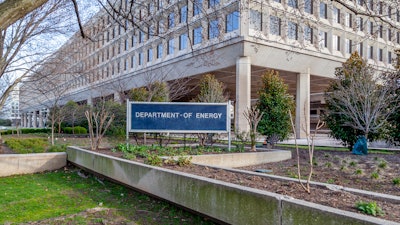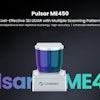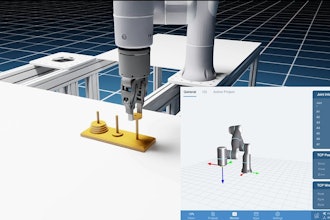
Rensselaer Polytechnic Institute has been awarded $607,505 from the U.S. Department of Energy Advanced Research Projects Agency – Energy (ARPA-E) to help develop technologies to resolve the waste and storage challenges associated with Advanced Nuclear Reactor fuel cycles.
The project is funded through ARPA-E's “Optimizing Nuclear Waste and Advanced Reactor Disposal Systems” (ONWARDS) program, which seeks to increase the deployment, and use of, nuclear power as a reliable source of clean energy and limit the amount of waste produced from Advanced Nuclear Reactors.
“I congratulate Professor Jie Lian and the team on receiving this important and highly competitive award," Dr. Shekhar Garde, dean of the School of Engineering at Rensselaer, said. "Dr. Lian’s work is at the forefront of applying the fundamental understanding of advanced materials to many important energy applications with impact on safety, recovery of materials and sustainability."
Molten salt reactor is an enabling technology of the GEN IV Advanced Reactors designed to meet future energy needs through improved safety and reliability, as well as high energy efficiency and effective use of nuclear resources. However, effectively managing the very complex waste streams from molten salt technologies represents a grand challenge in practice.
Rensselaer researchers will focus on developing a solution for effectively managing complex fluoride salt waste streams critical for the sustainable development of Advanced Reactor fuel cycles.
An innovative concept of metal halide perovskites (MHPs), which are currently revolutionizing photovoltaics and optoelectronics, is proposed for effective separation and immobilization of salt wastes, and recycling of valuable lithium resources.
In addition, researchers will also explore the scalability of a low-temperature, wet-chemistry (liquid phase analysis) process in synthesizing large quantity MHPs at low cost.
"Effective management of fluoride salt waste is critical for the sustainable development of advanced nuclear fuel cycles and future nuclear technologies," said Dr. Jie Lian, professor of mechanical, aerospace and nuclear engineering at Rensselaer. “The recovery and recycling of valuable Li from salt waste is also important as Li is an indispensable and critical resource in large demand for renewable energy applications."
The Institute’s project is one of 11 projects selected by the ONWARDS program to receive funding to reduce nuclear waste, support safe and sustainable domestic fuel stocks and advance the nation’s clean energy portfolio.
Rensselaer Polytechnic Institute is leading the development of advanced technologies for effective nuclear waste management and is also a key partner of the DOE Energy Frontier Research Center (EFRC) WastePD, the Center for Performance and Design of Nuclear Waste Forms and Containers.






















